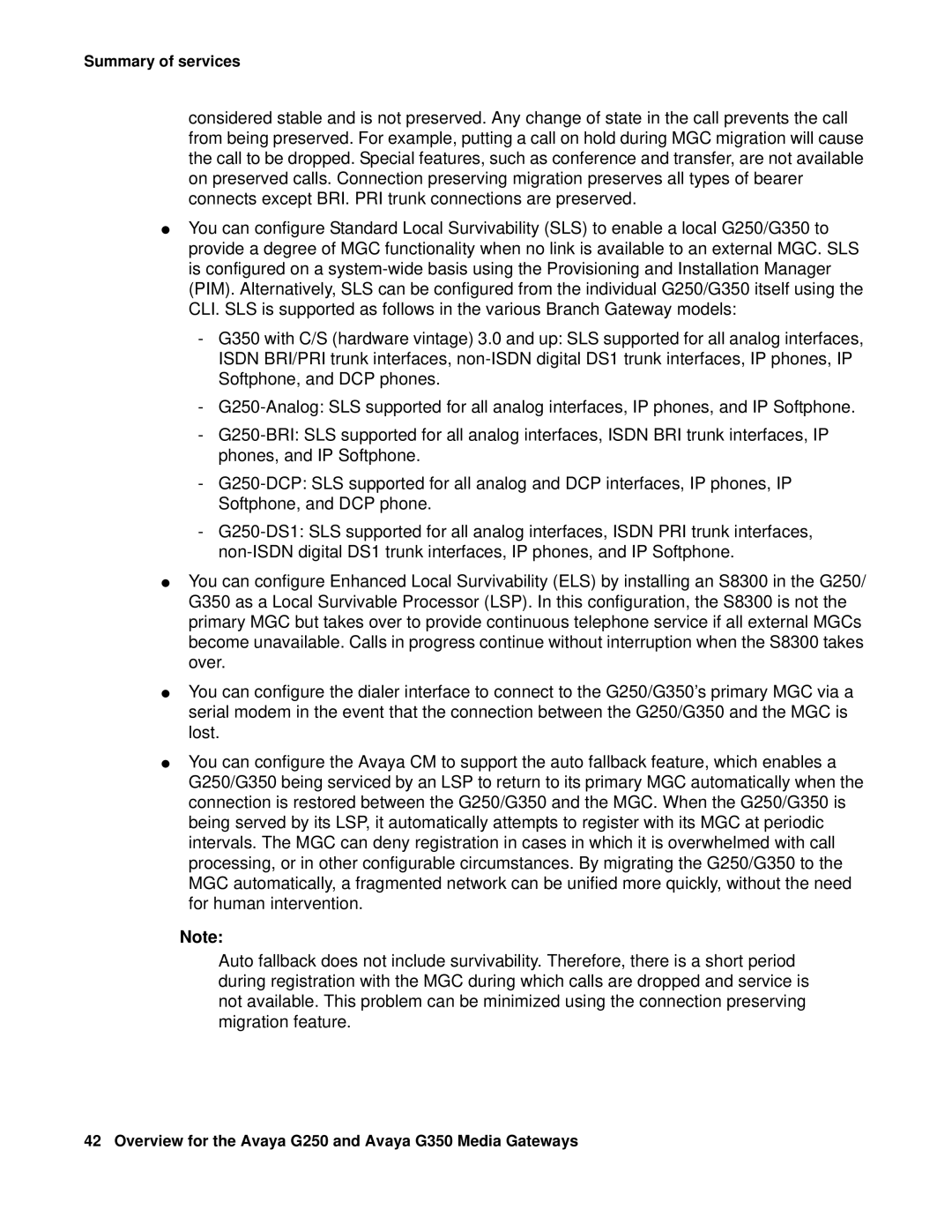Summary of services
considered stable and is not preserved. Any change of state in the call prevents the call from being preserved. For example, putting a call on hold during MGC migration will cause the call to be dropped. Special features, such as conference and transfer, are not available on preserved calls. Connection preserving migration preserves all types of bearer connects except BRI. PRI trunk connections are preserved.
●You can configure Standard Local Survivability (SLS) to enable a local G250/G350 to provide a degree of MGC functionality when no link is available to an external MGC. SLS is configured on a
-G350 with C/S (hardware vintage) 3.0 and up: SLS supported for all analog interfaces, ISDN BRI/PRI trunk interfaces,
-
-
-
-
●You can configure Enhanced Local Survivability (ELS) by installing an S8300 in the G250/ G350 as a Local Survivable Processor (LSP). In this configuration, the S8300 is not the primary MGC but takes over to provide continuous telephone service if all external MGCs become unavailable. Calls in progress continue without interruption when the S8300 takes over.
●
●
You can configure the dialer interface to connect to the G250/G350’s primary MGC via a serial modem in the event that the connection between the G250/G350 and the MGC is lost.
You can configure the Avaya CM to support the auto fallback feature, which enables a G250/G350 being serviced by an LSP to return to its primary MGC automatically when the connection is restored between the G250/G350 and the MGC. When the G250/G350 is being served by its LSP, it automatically attempts to register with its MGC at periodic intervals. The MGC can deny registration in cases in which it is overwhelmed with call processing, or in other configurable circumstances. By migrating the G250/G350 to the MGC automatically, a fragmented network can be unified more quickly, without the need for human intervention.
Note:
Auto fallback does not include survivability. Therefore, there is a short period during registration with the MGC during which calls are dropped and service is not available. This problem can be minimized using the connection preserving migration feature.
42 Overview for the Avaya G250 and Avaya G350 Media Gateways
